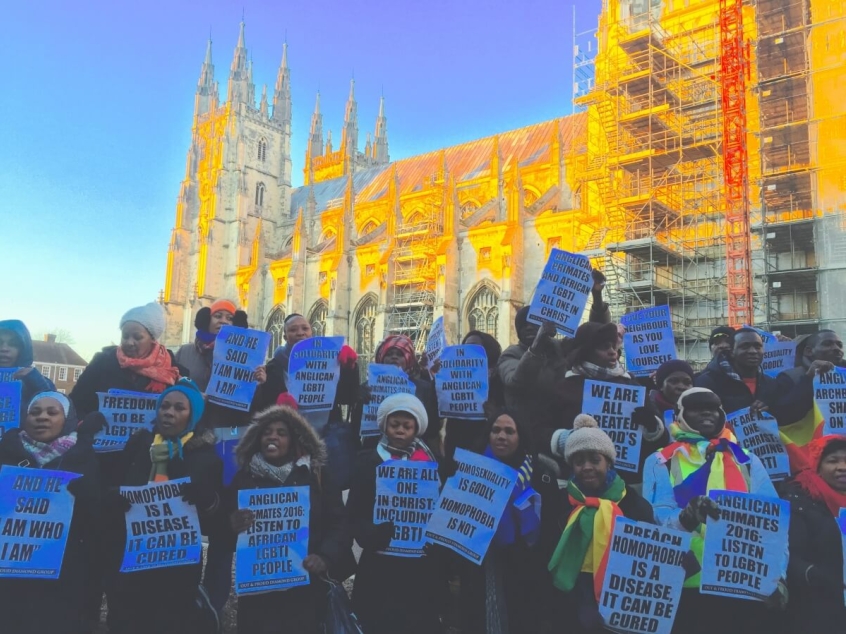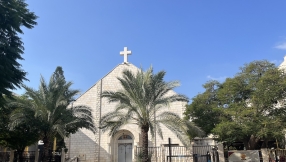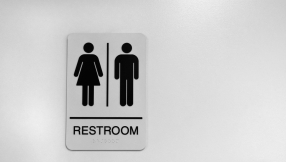
At the start of February Steve Chalke's Oasis Foundation published a report entitled In the Name of Love: The Church, exclusion and LGB mental health issues. The report argues that the LGB community experiences significantly worse mental health than the straight community as a result of discrimination and 'a sense of social inferiority', known in psychological circles as 'minority stress'. Further the report argues that the church has been a significant contributor to this minority stress and therefore bears some responsibility for the outcomes that have resulted.
Conservative Christians did not take this well. In the pages of Ian Paul's blog, Rev Peter Ould responds to the report, arguing that whilst it is undeniable that mental health in the LGB community is worse than the straight community due to minority stress, there is no evidence that conservative teaching in the church has contributed to this.
This post was widely shared.
In support of his claim, Peter analyses the result of an academic study into LGB mental health and religious affiliation. This was a strange response, as the Oasis report was not a comment on the mental health of the LGB community within conservative churches, but within society at large and the Church's contribution to wider society with its debate on matters of sexuality.
Nevertheless, treating the response on its own terms, Mouse finds Peter's analysis strange, as it seems to contradict the conclusions of the study itself. So Mouse asked the study's authors what they thought and they were kind enough to provide the following response:
'Ould (2017) cites our research (Barnes & Meyer, 2012) to show that 'LGB people do not have worse mental health outcomes when in "non-affirming" church environments.' In summarising our results, Ould misrepresents them. While we did not find an effect of religious affiliation on either depression or well-being, we found that unlike what is commonly observed, LGB people in non-affirming churches do not receive mental health benefits from religious affiliation, compared with those who never attend religious services in any setting.
'In fact, we found that LGB people who attend non-affirming religious settings have worse internalised homophobia compared with LGB people who attend gay-affirming religious settings and those who are not religious at all.
'The findings regarding depression and well-being should not mask the damage to LGB people's self-regard, which is manifested as internalised homophobia. We further found that the higher levels of internalised homophobia we found in Black and Latino LGBs, compared with White LGBs, was explained by the former groups' greater participation in non-affirming religious settings.
'In another paper, not cited by Paul, Meyer, Teylan, and Schwartz (2014) found that the risk for LGB people is very real: LGB people who sought pastoral counseling, in their church presumably, had higher odds of later attempting suicide than LGB people who sought medical or psychological treatment and those who did not seek any treatment at all.'
That was what the study's authors told me.
To put it in simple terms, LGB people in 'non-affirming' church environments have worse mental health outcomes than those in 'affirming' church environments due to increased levels of internalised homophobia. And perhaps most devastating of all is that those who sought 'pastoral counselling' were at higher risk of attempting suicide.
This is not good news.
Peter Ould is entitled to challenge the conclusions of the study's authors and to reinterpret their data to come to other conclusions, but Mouse would advise that his opinions be considered within that context. Mouse puts greater weight on the argument of the study's authors themselves.
To argue that 'there is no evidence' to support the claims of the Oasis report is simply not true.
Numerous academic studies have confirmed this. For example, one study found a significantly increased suicide rate among LGB young adults who had grown up in religious households. Mouse pointed this out to Peter Ould on twitter, although he again disputed the conclusions of the authors based on his own analysis of the data. Numerous studies in the US and other countries studies have shown that increasing acceptance of same sex relationships, and most importantly the legalisation of same sex marriage, has improved mental health outcomes for the LGB community.
The importance of this should be clear to anyone reading. It defies logic to suggest that growing up gay in an environment where homosexuality is such a 'hot button issue' would not impact on mental health outcomes. It also defies the testimony of the vast majority of the LGB community and empirical evidence. The most important thing here, however, is not to attempt to deny the facts, but to work out the best response.
It does not follow from these facts that churches should become any more or less affirming of same sex relationships - they say nothing about theology. But it certainly does follow that churches should be more conscious of the impact that their teaching has and make new efforts to ensure that LGB young people in particular are cared for within church contexts. Much has been made of the 'new tone' that is being sought in this debate and Mouse can't think of anything that would focus our minds more on achieving that than concrete evidence that the 'old tone' has been driving young people to take their own lives.
The Church Mouse is an award winning blogger and tweeter on church and society. He writes occasionally for the Guardian and tweets @thechurchmouse.
Reference:
Barnes, D.M. & Meyer, I.H. (2012). "Religious Affiliation, Internalized Homophobia, and Mental Health in Lesbians, Gay Men, and Bisexuals." American Journal of Orthopsychiatry 82, no. 4: doi:10.1111/j.1939-0025.2012.01185.x.
Meyer, I.H, Teylan, M., & Schwartz, S. (2014). "The Role of Help-Seeking in Preventing Suicide Attempts Among Lesbians, Gay Men, and Bisexuals." Suicide and Life-Threatening Behavior: doi:10.1111/sltb.12104.













